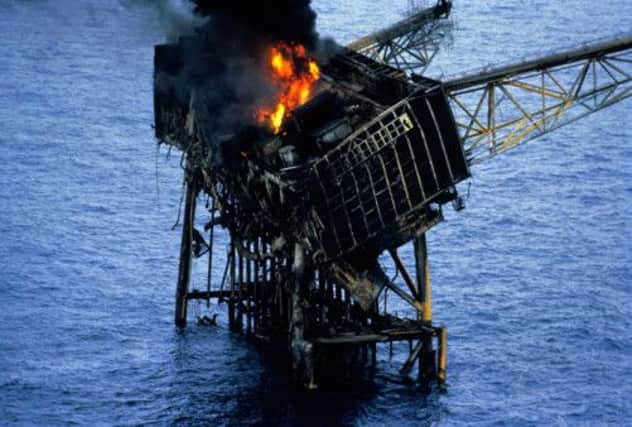Christine Jardine: Remembering Piper Alpha


It was not an expression any of us in the BBC’s Aberdeen newsroom had ever heard used about an oil platform. Evacuated yes. Abandoned no. Not until Piper Alpha.
It was the moment that July night that my more experienced colleagues in the newsroom stopped and looked at me almost in disbelief. Or perhaps it was hope that I had misheard the coastguard.
Advertisement
Hide AdAdvertisement
Hide AdAbandoned would mean the situation was hopeless, far worse than anything anyone was prepared for.
Almost in the same instant Jane Franchi was told the installation was completely ablaze and our worst fears were confirmed.
It is often claimed that our imagination conjures up images that are more frightening than reality. Not with Piper Alpha.
None of us could possibly have pictured anything as bad as what we later saw on film, or heard about from survivors.
At that moment all we had was the thought that out there in the darkness the worst nightmares of everyone involved in the oil and gas industry were coming true. The first phone call had held little warning of what was to come.
I had been tidying up the last of the prep for the morning in the BBC’s Aberdeen newsroom when I got a call from Glasgow. A radio ham on the west coast claimed there was something wrong on a North Sea platform. Could I check it out?
It was the third time that week. But this time it wasn’t a false alarm.
No-one was clear exactly what was happening but there was a problem. A big one. A security guard at Occidental told me their emergency response team was on its way into the office and the police had been notified.
Advertisement
Hide AdAdvertisement
Hide AdI called our producer and within minutes our news team in Aberdeen were mobilised. And then the coastguard used that word. Abandoned.
As the most inexperienced member of the team I mostly watched and learned in the newsroom, at the hospital heliport and then later at the airport hotel where survivors described the hell they had been through. I phoned who I was told, did what was needed and ran where I had to.
In the car on the way to the heliport Jane Franchi gently suggested how I should behave, what I should record and what I should not, and above all what I must not say.
“Remember the families of these men are listening to us,” she said. It’s advice that stayed with me throughout my career.
I remember too the waiting, the fear for the first time of what this career I had chosen might force me to see.
There was the overwhelming emotion at seeing the men who were safe. And then the realisation that only a handful of helicopters had landed, and the injured they carried were all that were coming.
The rest of the night was a blur, but before I headed home in the morning the producer took me aside, told me I had done well and that this was a story that would go on for years.
He was right. Later the same day the world’s media had descended on Aberdeen.
Advertisement
Hide AdAdvertisement
Hide AdIn the 25 years since, I have often leaned on the professional lessons I learned that night and passed them on to the young journalists I have taught.
If it happened now the BBC would cover it very differently. Satellite trucks and live links from the hospital have replaced phone calls into programmes on land lines and driving back and forward with tapes.
But I learned about more that night than journalism. I learned that those who work in that most dangerous environment to meet our energy needs, deserve the best safety regime possible.
We must make sure standards never slip and the safety of this generation is never compromised. We owe the men of Piper Alpha nothing less.